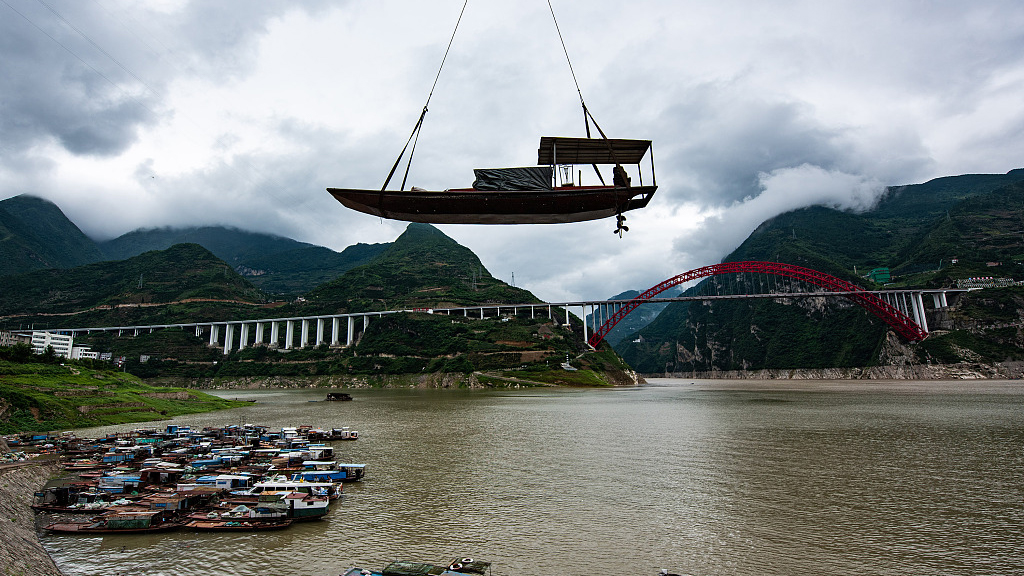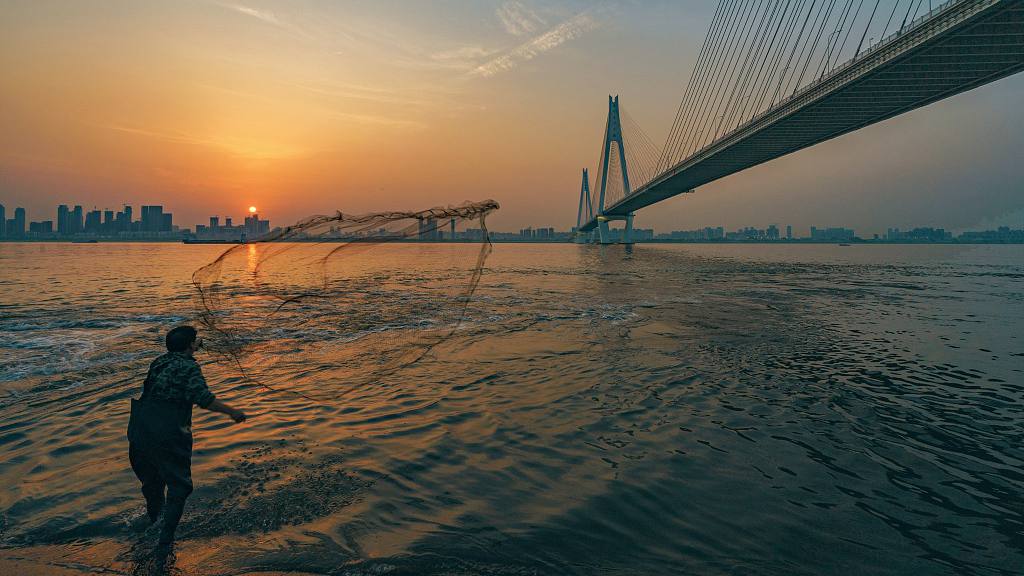01:49

There have been 332 conservation areas created along the Yangtze River basin, as part of China's 10-year fishing ban on key areas along the river, according to the State Council Information Office press conference on Wednesday.
Vice Minister of Agriculture and Rural Affairs Yu Kangzhen said that nearly 80,000 fishing boats and 100,000 fishermen have stopped working in several regions along the river as of now.
Read more:
Fishermen relocated and reemployed to gradually ban fishing in Yangtze
China began the 10-year fishing ban on key areas along the Yangtze River on the first day of 2020.
The fishing moratorium is designed as a key move in fighting depleting biological resources and degrading biodiversity of the river, which has long suffered from human activities such as overfishing, pollution and damming.
Read more:
Chinese authorities push for 10-year moratorium on Chinese river

At present, nearly 80,000 fishing vessels and around 100,000 fishermen have been advised to stop fishing along the Yangtze River. /CFP
At present, nearly 80,000 fishing vessels and around 100,000 fishermen have been advised to stop fishing along the Yangtze River. /CFP
The river used to provide 60 percent of China's freshwater produce at its peak. But in recent years, the annual catch has fallen to less than 100,000 tons (90,718 tonnes) from 420,000 tons (381,018 tonnes) in the 1950s.
The Ministry of Agriculture and Rural Affairs said the 10-year ban on fishing is the most efficient way now to revive the Yangtze River Basin.
"At present, nearly 80,000 fishing vessels and around 100,000 fishermen have been advised to stop fishing. Shanghai, Jiangxi, Yunnan and other provinces and cities have completed the work to prepare for the ban. However, the progress of preparation is not the same throughout. In some places, illegal fishing problems are more prominent. Our preparations are still facing a lot of pressure," said Yu.
A document issued by the State Council emphasized the urgency of stopping fishing and all its related activities along the river.
Officials also promised to resettle and provide reemployment to some 280,000 fishermen affected through occupational training. This will help them start other businesses while the ban is in place.
"We have already completed preparations in 332 protected areas of the river since January 1 this year. We hope to complete the full task by the end of this year. We will do a good job of the resettling the fishermen, to ensure the 10-year ban can be successfully carried out by next year," Yu said.
The document also said that during the ban, local governments will regularly supervise activities along the Yangtze River, punish violators, and forbid any form of black market.